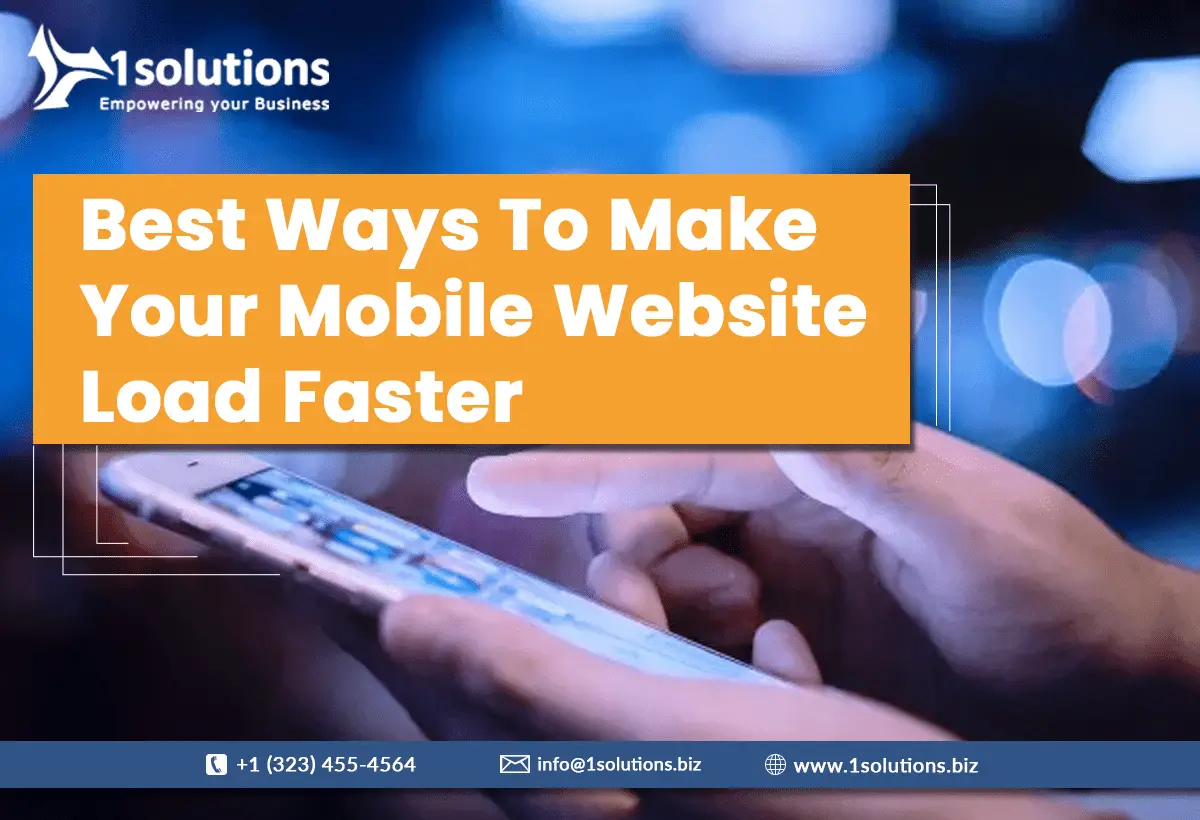When designing a website, it's easy to overlook the fact that one of Google's ranking considerations is mobile page speed.
While it may not be one of the most common causes for a website's failure to rank on the first page of search results, it won't be for long.
Three seconds has been established as the magic number for a mobile load time by Google, Radware, and mobile optimization experts.
Because everyone who uses the internet seems to be in a rush, webmasters should make loading a page as quick as feasible a top priority.
Whether you provide an eCommerce website service or are a business, mobile speed optimization is important for your business.
When it comes to the mobile version of your website, loading speed is even more important. Mobile customers are often on the go all of the time, and they will have little patience for slow-loading mobile sites.
So, if you want to maintain mobile users' attention long enough to generate leads or convert them, your mobile website's loading speed needs to improve.
There are a few things you can do to make your mobile website load faster. Below are some tips:
1. Optimize Images – Make sure that your images are properly optimized for the web. This will help reduce the file size and allow your website to load faster.
2. Use A Lightweight Theme – Choose a lightweight theme for your website. This will help reduce the amount of code that needs to be loaded, which will make your website load faster.
3. Minimize HTTP Requests – Try to minimize the number of HTTP requests that your website makes. This will help reduce the overall loading time.
4. Enable Compression – Enable compression for your website. This will help reduce the size of the files that need to be loaded, which will make your website load faster.
5. Use A Content Delivery Network – Use a content delivery network (CDN) to host your website's assets. This will help speed up the loading time for your website.
6. Optimize Your Code – Make sure that your code is optimized for the web. This will help reduce the amount of time it takes to load your website.
7. Use HTTP/2 – Use HTTP/2 to speed up the loading of your website. This new protocol will help reduce the amount of time it takes for your website to load.
8. Enable Caching – Enable caching for your website. This will help speed up the loading of your website's assets.
9. Use a Fast Web Host – Use a fast web host to host your website. This will help ensure that your website loads quickly for your visitors.
10. Test Your Website – Always test your website on different devices and browsers to make sure that it is performing as expected.
TAKE AWAY
As more people access websites through mobile smartphones, our websites must be ready to provide them with the greatest possible experience.
The only difficulty is that some of the old approaches to creating and optimizing a website for desktop just don't work as well on mobile.
However, by following the techniques above, you may increase the speed of your website in no time.
Just make sure you don't come to a halt there. It's critical to check your mobile website on a frequent basis to ensure it's running as quickly as possible.
These are some of the best ways to make your mobile website load faster. Following these tips will help ensure that your website is speedy and responsive for your visitors.








